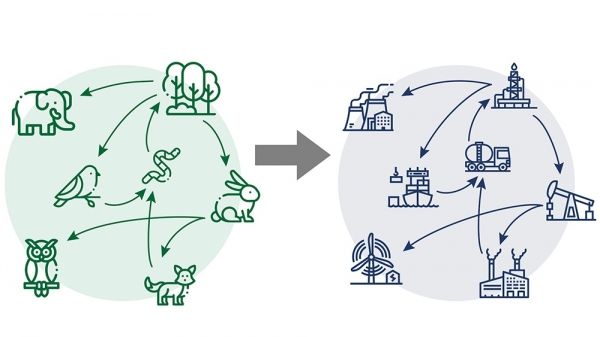By translating the pattern of interconnections between nature’s food chains to industrial networks, researchers at Texas A&M University have delineated guidelines for setting up successful industrial communities.
The researchers say this guidance can facilitate economic growth, lower emissions and reduce waste while simultaneously ensuring that partnering industries can recover from unexpected disturbances. Their findings are published in the journal Resources, Conservation & Recycling.
“Industries can often partner up to exchange byproducts and over time these industries might form bigger communities. While these networks sound quite beneficial to all industry partners within the community, they are not always successful,” said Astrid Layton, assistant professor in the J. Mike Walker’ 66 Department of Mechanical Engineering. “We tried to solve this problem by providing design guidelines inspired by nature’s food webs so that the overall system will be both eco-friendly and save money for everyone.”
Continue reading at Texas A&M University
Image via Texas A&M University


